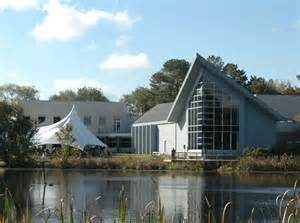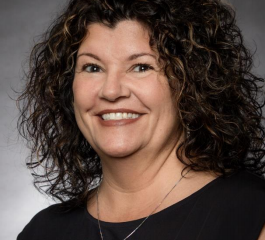
Salisbury University’s Ward Museum of Wildfowl Art recently announced a $250,000 gift to the Ward Foundation for the museum’s 2014-2016 Soar to New Heights capital campaign. The campaign’s goal is $1,500,000 to support the expansion of the Ward Museum and much-needed capital improvements to the galleries and facility.
The Richard H. Henson Foundation, Inc. pledged $250,000 toward the construction of a new educational facility at the museum overlooking Schumaker Pond.
The new building will add 2,200 square feet to the museum and be used as an education center and flexible meeting space to serve the growing needs of educational and cultural programs for all ages. The center will enable the museum to serve grade-wide school field trips for the first time. It will also incorporate environmentally sustainable design, including solar paneling and geothermal technology.
“The Richard H. Henson Foundation has supported the Ward Museum in the past and we are grateful for their generous commitment to our future,” said Lora Bottinelli, executive director of the Ward Museum. “This expansion and additional improvements should enable the museum to meet its educational service goals for the coming decade.”
The new building is the centerpiece of the museum’s campaign. Funds raised also will support gallery renovations, including the museum’s namesake Ward Brothers Gallery, smart classroom technology improvements to education rooms, roadside signage replacement, retail area renovations, collection storage area upgrades, and landscaping and public sculpture garden enhancements.
”As the only local, nationally accredited museum, the Ward Museum is a great asset to the Salisbury community. It provides more than $6 million in economic impact to the region. This project will increase the museum’s ability to reach young students and increase their awareness of nature, wild fowl art and our area’s heritage. Presently over 6,000 school age children visit the museum each year and we are happy to support the museum’s educational effort,” said Donna Altvater, Executive Director of the Henson Foundation.
“We are looking to the future growth of the museum,” said Dr. Kent Kimmel, board chair of the Ward Foundation. “The new facility, located right on Schumaker Pond, will provide opportunities for school-aged children to experience nature directly, face-to-face, that they might not normally get. We are growing the museum so the next generation can continue to experience the art, nature and tradition of our region.”
About The Ward Museum
Salisbury University’s Ward Museum of Wildfowl Art features the world’s largest public collection of decorative wildfowl art and antique decoys. The museum is named in honor of famed Delmarva carvers Stephen and Lemuel Ward and strives to lead the way for advancing the understanding of wildfowl art and the interrelationships of art, nature and tradition.
Through educational programs, exhibits and events the museum builds upon the legacy of Steve and Lem Ward to bring young and old to a greater understanding of the human relationship to the natural world. The museum is accredited by the American Alliance of Museums, the highest national recognition for a museum. The Ward Foundation Inc. is a 501-c3 non-profit organization which is an affiliated foundation of Salisbury University.
About the Richard A. Henson Foundation
The Richard A. Henson Foundation, Inc., was established to provide for and to assure the continuation of the philanthropic spirit, objectives, and ideals of Richard A. Henson, to enrich the quality of life primarily in the Greater Salisbury, Maryland, area, and to provide challenging opportunities and act as a catalyst for the betterment of the community.
In order to reach and assure these goals, Richard A. Henson provided direction and leadership of the Foundation during his lifetime. Today, it is managed and governed by trustees who share his attitudes, beliefs, and ideals as to the purposes and goals of community philanthropy.
For more information contact Bottinelli at 410-742-4988 or lmbottinelli@salisbury.edu; or visit the Ward Museum website at www.wardmuseum.org.



